 |
Century Of The Dragon (1999) |
 |
 |
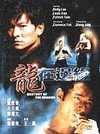
 Hong Kong matinee idol Andy Lau plays an aging mob boss gone straight who's pulled back into the business by police and rival gangs. One of his lieutenants (Louis Koo) is really an undercover cop, and the other one (Anthony Wong) has a son who's returned home from studying in Britain to learn the ways of the underworld. Director Clarence Fok (Naked Killer) expertly paces the action, building suspense as a series of provocations by the increasingly ruthless kid tests the men's loyalty toward one another. The chemistry between the charismatic Lau and the stoic Koo generates a moral and emotional force similar to the male bonding in John Woo's gangland sagas, and Fok exploits it for a gripping finale. Hong Kong matinee idol Andy Lau plays an aging mob boss gone straight who's pulled back into the business by police and rival gangs. One of his lieutenants (Louis Koo) is really an undercover cop, and the other one (Anthony Wong) has a son who's returned home from studying in Britain to learn the ways of the underworld. Director Clarence Fok (Naked Killer) expertly paces the action, building suspense as a series of provocations by the increasingly ruthless kid tests the men's loyalty toward one another. The chemistry between the charismatic Lau and the stoic Koo generates a moral and emotional force similar to the male bonding in John Woo's gangland sagas, and Fok exploits it for a gripping finale.
 Century of the Dragon is the inspiration behind Infernal Affairs. Century of the Dragon is the inspiration behind Infernal Affairs.
Century of the Dragon is a strong and well-crafted thriller, with certain similarities in plot and certainly character development to that of its 'forefather', Infernal Affairs. It is therefore safe to say that this film influenced Andrew Lau's international hit some years later. Much like the aforementioned modern classic, there are no two dimensional characters and the plot actually has very few holes. The actors are virtually all perfectly cast and fulfill their individual on-screen personas remarkably. Andy Lau and Louis Koo, two male leads who could be branded as mere popular star faces in fact turn in incredibly balanced and defined performances, particularly Koo, who shows the painful trauma of an undercover cop who must either fulfill his duty or remain loyal to the boss who has treated him well. Patrick Tam gives his best villainous performance since Beast Cops a year previous, and Anthony Wong, although in a minor supporting role here, provides solid support. The film certainly does not posses the complexity of plot or richness of a film like Infernal Affairs but nevertheless, as a pre- Infernal Affairs effort, it provides us with one of the better cop/triad stories of the late 1990s.
The tone is unusually dark and serious, and for fans of Infernal Affairs it provides an interesting opportunity to keep an eye out for details that would later return to the screen in Andrew Lau and Alan Mak's popular trilogy.
Highly recommended.
|
 |
 |
Mike Fury 11/17/2006 - top |
 |
 |
Diary (2006) |
 |
 |
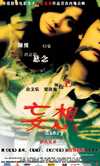
 A diary records what happened everyday, but Winnie’s dairy records what will happen in the future – a version of reality she creates with her own paranoid “fact”! Winnie once had a happy family and a caring lover. One day, she found her lover, Seth, gone without a word. Unable to bear the pain, she called her friend, Yvonne, for help. After listening to Winnie, Yvonne, surprisingly, taught Winnie to revenge on the one who betrays her...... A diary records what happened everyday, but Winnie’s dairy records what will happen in the future – a version of reality she creates with her own paranoid “fact”! Winnie once had a happy family and a caring lover. One day, she found her lover, Seth, gone without a word. Unable to bear the pain, she called her friend, Yvonne, for help. After listening to Winnie, Yvonne, surprisingly, taught Winnie to revenge on the one who betrays her......
 Sometimes when you're being derivative good things transpire, and that in itself can deliver a more shocking revelation than all the cheesy FX and predictable chillers put together. Sometimes when you're being derivative good things transpire, and that in itself can deliver a more shocking revelation than all the cheesy FX and predictable chillers put together.
This is what happens with The Diary, a foray once more into the Pang Brothers breech with their entourage of Thai filmmakers and knack for intelligent gore. After the disappointing Re-Cycle set the prolific siblings back a bit, it's pleasant to see them back in moderately satisfying form with a short yet titillating release timed nicely for the Halloween season.
On the surface, The Diary seems like it's bound for also-ran perdition, hinting just a slight too much at working that tired old The Eye magic one time too many. Even its main star, Charlene Choi, puts on a spectacular Angelica Lee imitation to the point where at the onset of proceedings wary viewers will be tempted to give up and call it a write off.
Do not: perseverance here is a bona fide virtue, and The Diary has going for it more than meets, well, the eye. Ironically, those very fears of this effort descending into a realm of rip-off fiascoes save it from a fate worse than celluloid death. As soon as one thinks they've seen it before, which they have in many ways, The Diary comes charging through to twist those well-worn elements and throw our own jaded sights right back at us.
Choi dabbles in some of her best acting yet as disturbed Winnie (Leung Wing Ni we believe in the original Cantonese), a lone young woman trapped in a bizarrely old-fashioned dwelling full of marionettes and assorted memories. She has a diary going on, although it's not as imperative to events as the title suggests. Instead, this film revolves around perceptions, memories and knowing what's real. The prime horror here aren't ghosts, devils or monsters, but the worst enemy a person could ever have: their own mind.
Winnie struggles with sadness and guilt over the parting of her boyfriend Seth, until meeting another man whom she believes to look remarkably like the flame lost. However, this entanglement soon also takes on sinister undertones. The man, Ray, offers scant solace and never truly feels to Winnie the way a significant other should. Wonder why. Ray's done by Shawn Yu, an excellent performer in his own right and worthy successor to sensitive-manly icons a la Chow Yun Fat and Ti Lung. Yue deploys his full range of down-to-earth but superlative tricks to help immerse us in the story, making up for The Diary's obvious genre associations and further highlighting serious acting going on here.
Another boon comes from Isabella Leung (accidentally credited as Isabbela), doing Winnie's friend and sounding board, although, much like Ray, she too never really behaves the way you'd expect from someone who cares.
The trio move around The Diary's reality, or lack thereof, with a pervasive sense of malaise, affecting the movie's delectable mood of diseased uncertainty. We must again mention their surprising and impressive work as seen here, something to write about, home or otherwise. They're not usually considered part of the annual awards posse, and so it's quite gratifying to behold the potent characterizations rendered so eloquently for the benefit of audiences willing to look past pop-star prejudices.
Coupled with dozens of genuinely puzzling moments and several startling devices, they add up to a promising product that's by far the best Pang Bros outing since The Eye itself wowed us over four years ago.
Despite its reasonable IIB rating, The Diary fields some gore and more than that beckons with the suggestion of things terrible lurking in the background. Its staunch refusal to commit to specifics such as time and place defy the desire to put it in neat brackets. There's dated entries from the diary Winnie keeps, but those eventually turn out to mean next to nothing in themselves. As for geography, the close-cropped cinematography denies the broad vistas needed for reassurances, as visuals deny audiences the comfort of knowing where and why anecdotes unfold. All we see are basically glimpses or brief vignettes of apartments, markets and office buildings. There's very little context, an important tool in establishing surrealism. However, this could conceivably have something to do with the Pangs maybe trying to pass the mainland off for HK due to cost cutting. Another mystery, apparently.
Its short runtime alludes to The Diary's potential as a chapter in a Three... Extremes-esquire project, as does Winnie with her penchant for "cookery". But just when it could have bowed out on a note of unresolved malice, its makers run away and close with extra scenes consisting of resolution we could have done better without.
Even so, and despite lacking the brute force of a mind blower, The Diary has enough pseudo-horror intelligence and winding twists to be enjoyable. It likely won't stand the test of time in the long run, but nonetheless does something to inject more life into a thread of movie-making beset with settling for average and using one pasty-faced protagonist too many.
For those on the prowl and looking to sink gnashing teeth into something fun and dark at the same time, The Diary comes recommended. (8/10)
|
 |
 |
Lee Alon 11/1/2006 - top |
 |
 |
DOA : Dead Or Alive (2006) |
 |
 |

 The movie adaptation of the best selling video game series Dead or Alive. The movie adaptation of the best selling video game series Dead or Alive.
 There was little expectation of good cinema when approaching Dead or Alive (DOA), supplanted by the inevitable assumption that it will end up a Mortal Kombat knock-off in more ways than one. Sure enough, that's exactly what happened, with the movie based on Tecmo's celebrated fighting game looking, feeling and punching along lines already in use for many years. That is to say, we're presented with an acceptable action-comedy of sorts, although it misses big time in recreating the excitement so characteristic of the games from which it draws source materials. There was little expectation of good cinema when approaching Dead or Alive (DOA), supplanted by the inevitable assumption that it will end up a Mortal Kombat knock-off in more ways than one. Sure enough, that's exactly what happened, with the movie based on Tecmo's celebrated fighting game looking, feeling and punching along lines already in use for many years. That is to say, we're presented with an acceptable action-comedy of sorts, although it misses big time in recreating the excitement so characteristic of the games from which it draws source materials.
In fact, the studio makes scant effort to establish any linkage with DOA the video gaming franchise, and you have to dig deep to even encounter a semblance of acknowledgement. Just as well, perhaps, for in addition to crediting Tecmo and their celebrated Team Ninja developers, this film rendition also neglects to include the hottest aspect of its electronic entertainment incarnation, the babes.
Nothing has made Dead or Alive famous as do its female protagonists, all busty, salacious and extremely bouncy. There have been numerous allegations and accusations over the years as to how DOA was corrupting young and adult minds, to all which we say: boulderdash! A finer collection of martial arts beauties has never been assembled before nor since, and for Corey Yuen to direct a version bereft of those alluring assets is downright ridiculous. Thus, we're left with a skeleton, one that looks good, sounds spectacular and even makes the odd viewer chuckle with bemusement, but has only passing association with its best-selling namesake.
This, of course, harks to several other game-to-movie conversions that have fallen flat on their faces for want of recreating the feel of the game which rendered making a movie viable in the first place. The basics here can be covered post haste. Devon Aoki leads a cast of attractive ladies that aren't even remotely as well-endowed as those from the games. Aoki plays Princess Kazumi, venturing after her long-lost brother Hayate (Collin Chou from the two latter Matrix films). She enters a secretive martial arts tournament towards this objective, where many of DOA's notorious characters await. They all wear more or less precisely their attire from the games, so that's good. Effects and music maintain an exhilarating tempo, and we're spared embarrassing visual effects of assorted cheap-looking creatures, re Mortal Kombat.
But in actual terms the movie has almost none of the fight moves we love so much. Dead or Alive pioneered tag team fighting in many ways (absent), rapid combo sequences (nowhere to be seen) and counter attacks (never made it). This lukewarm amalgamation of action scenes doesn't help, even though several protagonists do quite well overall. Especially nice is Natassia Malthe (Elektra), appearing as ninja Ayane, but even she lacks the cuppage. Sarah Carter as Helena, Holly Valance doing assassin Christie and Jaimie Perssly in the role of wrestler Tina are all acceptable, but with the original DOA's essence brushed aside they can't do a lot to save the day.
Not that they're faced with much of a formidable opposition. Eric Roberts visibly doesn't want to be here, reduced to cookie-cutter crooked tourney organizer Duncan. And many other characters that could have contributed and were so prominent in the video games further lack the befitting breadth of film. Zack, Gen Fu and everyone's favorite Lei Fang provide either the briefest cameos or mere supporting filler. This can be frustrating if you care about the subject matter. As someone who's spent copious amounts of time facing friends and foes in a suburban living room over endless sessions of DOA2: Hardcore, the cinematic release fails to satisfy by a long mash of a button.
Relinquishing the girls' bombshell appearance would have been perfectly minor had they succeeded in holding on to the exciting pace and frenetic, intricate martial arts from the games. Since those are just as out of the picture, we must therefore assume it wasn't for the dedicated gamer that this project was put together. Consequently, we must judge it just as we would any other action flick, and that judgment does not spell approval.
5/10
|
 |
 |
Lee Alon 10/9/2006 - top |
 |
 |
Banquet (2006) |
 |
 |

 We waited long but finally the mire that has pervaded martial arts cinema parted to make way for what hopefully may be the first positive evolution this genre has seen in years. From its frenzied, creative golden age during the 90's, with Hong Kong movie makers graduating into the best action wuxia ever made along the lines of The East is Red, Iron Monkey and dozens others, kung fu movies descended into the doldrums of pompous pretense and self-importance post-Crouching Tiger. This over-produced, artificial and often generic galore has given us barely-coherent efforts like The Promise, Seven Swords and The Myth. We waited long but finally the mire that has pervaded martial arts cinema parted to make way for what hopefully may be the first positive evolution this genre has seen in years. From its frenzied, creative golden age during the 90's, with Hong Kong movie makers graduating into the best action wuxia ever made along the lines of The East is Red, Iron Monkey and dozens others, kung fu movies descended into the doldrums of pompous pretense and self-importance post-Crouching Tiger. This over-produced, artificial and often generic galore has given us barely-coherent efforts like The Promise, Seven Swords and The Myth.
All of the above looked like an exercise in budgeting inflation, but had nothing to do with the fun and energy we came to expect from the delectable mix of wires, hyperactive protagonists and made-up fairy tale storylines. So it is with utmost pleasant surprise that we accept The Banquet, coming from the least predictable of source. Its director, Feng Xiaogang, was previously responsible for rather mediocre products such as World without Thieves and Big Shot's Funeral, but still he's managed to come up with the most candid entry into the pantheon in years.
Combining the resplendent artistic sensitivities of catalog piece Hero with the no-holds-barred salaciousness so missed from aeons passed was no mean feat, but here we are, watching the result, a film that almost gets the best of both worlds down pat. The Banquet unfolds like a good old fable, starting with the usual shtick about ancient kingdoms falling apart and chaos plaguing the land, a prologue seeming a touch Lord of the Rings-esque. It proceeds to provide us with solid characters and an involved plot, compounded by several bits of genuine action and steamy sensuality.
Unlike all of its recent predecessors, The Banquet doesn't shy away from copious spurts of blood, and has many of its participants frolicking all over the shop barely clothed, recalling the halcyon days when Tsui Hark was actually making movies you'd care to watch. And once looking beyond the hackneyed setting, with its wicked emperor and suffering victims, there's quite a lot to relish in The Banquet, especially its message that greed and self-sacrifice equally do not pay off in the long run.
Ge You (Cala My Dog, World without Thieves) at long last proves his mettle as Emperor Li, an usurper on the throne with little aspiration for power and more of an emphasis on milking his new posting for all it's worth. That mostly entails having a good time with Empress Wan, done very nicely by Zhang Ziyi, who's finally, finally herself again, almost six years after Crouching Tiger, Hidden Dragon. Not only is she even more gorgeous than back in the fickle dotcom boom period, she's again doing the kind of character tailored to her skills: a sinister, scheming but endlessly attractive femme fatale. The Geisha and her freaking memoirs is dead, long live the Empress!
Traipsing around these two conniving masterminds are the innocent good guys. They consist of Daniel Wu as Price Luan, exiled by the emperor but coming back to reclaim his birthright from a tenure among mysterious be-masked artists we wish the movie would show more of. His soul mate is Zhou Xun as Qing, daughter of a disgruntled politician and imperial courtesan, (Ma Jing Wu), whose overly-dramatic manner nonetheless ends up totally believable.
The setup, resembling in many pleasant ways traditional theater tragedy, enjoys prominent beefing up using strong visuals and impressive action bits that do not overwhelm with self-importance since they really amount to a small portion of The Banquet's running time. Sure, some of it looks too much like a night at the dance hall, but behold the cool Imperial guards in action and you'll forgive Yuen Woo Ping the occasional indiscretion. What's more, the obvious absence of any strangely-invincible characters shows just how much The Banquet doesn't take itself seriously: sooner or later, everyone gets hacked.
Tan Dun, the composer from Ang Lee's Crouching Tiger, also returned with a superb soundtrack that works, a change from these bloated showpieces we've been subjected to for over half a decade. This complements a plethora of inventive tricks connecting The Banquet with its older, trailblazing relatives. Great use of masks, theme songs, stage play and language distinguish proceedings, plus a glimpse of Zhang Ziyi's butt certainly helps.
This is a good movie, no two ways about it, except it misses a glorious opportunity to finish on just the note expected in top-notch tragedy, the ilk of story it belongs to at the end of the day: an extra ten minutes that feel needlessly tacked-on transpire, but at least they involve more of Zhang Ziyi's evil prancing and the most blunt whodunit in living memory, so why complain? The best thing to be said about The Banquet is that it'll be a long wait until the home video release comes along. It's a compelling, well-crafted release that manages to walk the line between big-buck production and wild martial arts abandon. For that, we applaud it.
|
 |
 |
Lee Alon 9/22/2006 - top |
 |
 |
On The Edge (2006) |
 |
 |
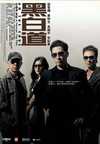
 An undercover cop comes back from years among Hong Kong's triad culture, only to find the world has left him behind. An undercover cop comes back from years among Hong Kong's triad culture, only to find the world has left him behind.
 From the moment Brother Hung's atmospheric soundtrack begins to complement equally weather-soaked visuals in this new tiad piece, you know a treat is in store. From the moment Brother Hung's atmospheric soundtrack begins to complement equally weather-soaked visuals in this new tiad piece, you know a treat is in store.
But mesmerizing sounds courtesy of Mr. Hung and his versatile keyboard compositions aren't all that's before us, something assured in part thanks to the presence of prolific director Herman Yau. His talents have previously been responsible for starting the entire Troublesome Night franchise in addition to more mainstream releases like Herbal Tea (2004), and now we have him engaged in more nefarious hijinx.
And frankly, On the Edge comes quite close to being a perfect movie, a feat stopped short only by its existence in a universe tread so many times it's due for a tire rotation: the indefatigable realm of Hong Kong cops and robbers.
Elements of Infernal Affairs and Expect the Unexpected emerge thick and fast, albeit with a major twist and superb execution. As a complete product, On the Edge wins out, bringing back the kind of cinema HK's vaunted worldwide reputation has been founded on.
The lead herein belongs to Nick Cheung, a truly believable and thoroughly impressive actor who rarely receives the primary roles his acumen suggests. Weaned on supporting performances thus far, Cheung portrays undercover cop Harry Sin, known to the criminal elements as Harry Boy. As the latter, he ensconces himself in a major organization headed by Boss Dark (Francis Ng in another quirky but effective appearance).
Harry does so well, he pretty much becomes a fully-fledged triad, befriending henchman Mini B (Derek Tsang of AV fame), while totally falling for gorgeous karaoke joint beauty Cat (lovely Rain Lee).
There have been, and doubtless will continue to be, stories about cops masquerading as the criminals they're supposed to bring in, but not many reach the palpable emotional effect ascribed to On the Edge. The interaction between Harry and his various underworld associations is rendered not only authentically, but with authoritative, effective melodrama liable to keep most viewers glued to the screen from start to finish.
Yet more awaits: when Harry finally meets his day of reckoning and is forced to act as law enforcer rather than loyal blood brother, a twist appears. He gets to keep his triad persona free of retribution, in complete contrast to audience expectations. Those mandate a swift reprisal, but here quite the opposite transpires. This results in a most interesting situation, where Harry walks a line among the two opposing realities, alternating between newly-returned-from-the-cold, celebrated operative and formerly-loved compatriot-turned-traitor.
Naturally, neither faction trusts Harry. Even his colleagues in the police force feel compelled to proceed cautiously, taking his comeback with a grain of salt. This is especially the case with seasoned and brutal veteran Lung, who marks one more solid showing for one of our favorites, Anthony Wong. Lung has little patience for those he considers on the wrong side of the law, a viewpoint ultimately inclusive of Harry Boy.
Unable to shake either stigma, Harry's entire identity comes under scrutiny by others and, more so, himself. This conflict is done on a par with classics such as Serpico and Donnie Brasco, balancing strong characterization, emotive content and action like a fine-tuned symphonic orchestra, save for one brief, annoying segment recalling TV series 24 a bit too much.
Some may worry On the Edge belongs in the predictable and formulaic pile, but such pigeon-holing simply won't do in its case. Certainly a card-carrying member of the triad genre, On the Edge's running of a supremely tight ship raises it above the usual fare. It encompasses all the essential components, down to much-needed violence, gore and suggestive themes.
Unlike oft-touted Election, On the Edge doesn't resort to ceremonial pomp and mysticism, nor does it shy away from the juicy stuff. After all, how can you seriously expect people to buy into a crime epic devoid of blood, guts and the occasional car chase? In that respect, On the Edge refrains from pulling too many punches. It's as straight-faced as possible, caters to no obvious agenda, and even has cops that look and act like the real McCoy (could be because many of the extras are actual police officers, differing from other films).
While it may not be on the cutting edge of innovation, On the Edge for sure rides the crest of quality and makes a proud stand for HK cinema as it once was. Support it, watch it.
|
 |
 |
Lee Alon 9/3/2006 - top |
 |
 |
Dog Bite Dog (2006) |
 |
 |
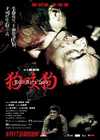
 Pang Jr., a young killer from Cambodia, arrived Hong Kong to assassinate the wife of a judge. But once Pang finished his job, he got into a misunderstanding with his agent and was left astray on the city's unfamiliar streets. Pang Jr., a young killer from Cambodia, arrived Hong Kong to assassinate the wife of a judge. But once Pang finished his job, he got into a misunderstanding with his agent and was left astray on the city's unfamiliar streets.
At the same time, cop Sam and his team of detectives, Lam, Keo, Cheung and Wai, got their orders and arrived the crime scene to investigate. Wai soon found Pang with his intuition and started pursuit. The two men became like two wild dogs to attack each other, neither one wanting to stop until the other side fell!
 Finally we have before us a Catégory III movie for the summer 2006 season. Made of equal parts cruelty, crime and passion, Dog Bite Dog benefits not merely from an apt title, but also from a flexible direction, superb cinematography and respectable performances from most involved. Of course there has to be a catch, manifested here in the form of several glaring inconsistencies, yet all told DBD represents the mature spirit we'd love to see more in the HK mainstream. Finally we have before us a Catégory III movie for the summer 2006 season. Made of equal parts cruelty, crime and passion, Dog Bite Dog benefits not merely from an apt title, but also from a flexible direction, superb cinematography and respectable performances from most involved. Of course there has to be a catch, manifested here in the form of several glaring inconsistencies, yet all told DBD represents the mature spirit we'd love to see more in the HK mainstream.
It also marks the heralded return of Edison Chen, long absent since the Initial D debacle of a year ago. Chen's reserved machismo does wonders for the movie, yet he would have had it rough without opposite Sam Lee, whose knack for alternating between physical comedy (Crazy 'n The City, No Problem 2) and lunatic menace has culminated in the strongest role we've seen from him since Made in Hong Kong.
Together, the duo makes Dog Bite Dog, and hopefully Edison's going to get an easier break from now on as a consequence: his touch transformed projects from Princess D to the Infernal Affairs saga, and still he remains a rare occurrence.
Mostly upon commencing, DBD showcases some mesmerizing imagery, playing gorgeous tricks with light, shadow and perspective. The soundtrack boosts this atmospheric effect, adding to the overall unreal mood the film purveys. Much of the resultant combination probably has to do with writer Matt Chow, previously engaged in likewise gruesome Three... Extremes. Dog Bite Dog retains numerous traits recalled from that horror project, namely rundown urbanscapes and a pervasive air of something eerie lurking round the corner.
Rest assured, though, this isn't a horror movie, instead following a path trodden before by classic One Nite in Mongkok, albeit from a more perverse angle. Replacing Daniel Wu's reluctant mainland assassin character we have Edison, playing a nameless killing machine hailing from Cambodia's underworld. Sent Hong Kong-way to execute a single target, the nearly silent assassin takes care of business immediately upon arrival, a process chillingly depicted courtesy of the film's brilliant visuals.
Although weaned from childhood to become a professional killer, Edison's eponymous wild dog still has human weaknesses and leaves a trail, picked up on by a C.I.D. team sent to investigate. This assembly features a nice cameo by mob-movie stalwart Lam Suet, and good support from TV star Wayne Lai. However, Sam Lee's renegade officer Wai leads the charge, revealing himself to be a highly disturbed individual but excellent cop nonetheless. We gradually learn Wai's inner-conflict stems from his father's police corruption background, evoking demons handy in the relentless pursuit that ensues.
A minor body count transpires, as Edison seems to consider taking prisoners a no-no. There's quite the violence quotient in store, even though gore per se feels toned down in places, and adult language only makes a token appearance. Once more, no nudity, leading one to conclude Cat III's are being handed these days a bit hastily. Still, DBD's a relatively mature theatrical release, and we applaud its arrival.
In between the fighting, stabbing, hacking and shooting, even a career murderer needs some romance, and just like Daniel Wu had Cecilia Cheung in One Nite, so does intrepid Mr. Chen get a sweetheart, done beautifully by new comer Pei Pei. Her unnamed character (lots of anonymity in this one) meets Edison's at a strangely deserted landfill, abused by her father to the point of repulsive madness and yearning for escape. When the killer ditches HK, he agrees to take her with him, and they go on the run together, love blooming en route. While the movie doesn't linger on lovey-dovey stuff, our hearts go out to Pei Pei's tragic character and her endless suffering. She renders the timid but valiant protagonist amazingly well, establishing that there aren't any good or bad guys here, evinced by the highly sobering finale.
Director Soi Cheang's portfolio includes recent suspense thriller Home Sweet Home and Love Battlefield with Eason Chan, two numbers likely surpassed in most accounts by Dog Bite Dog's sinister demeanor. Cheang manages to keep DBD flowing throughout, and considering the many parts in play here, stands up to critical standards erected by people like Johnnie To in his watershed nocturnal epic The Mission. A couple of glitches do come about, to wit Edison miraculously shrugging off a shot to the chest, but these are highly forgivable.
Marking triumphant returns for two young, talented performers of the kind Hong Kong needs if we want the city's movie heyday to come back, Dog Bite Dog doesn't stand out for story. Its forte lies in strong portrayals and style, buoyed along on the strength of thespian muscle and a keen eye for visual and auditory finesse.
HK has a long, time-honored tradition of stories to do with the city's nighttime alter-ego, something Dog Bite Dog upholds lovingly, amounting to a solid run if not an outright masterpiece.
|
 |
 |
Lee Alon 8/18/2006 - top |
 |
 |
Re-Cycle (2006) |
 |
 |

 Here sits one lone reviewer, looking over his shoulder for fear of boredom, staving off the desire to behold more than what has come before. Alas, much like the protagonist of many a pseudo-horror film, he too must come to terms with the mediocrity of it all. The shadows do contain boredom, although fortunately it really packs no more punch than any lame, spooky thing a small effects budget will buy you. Here sits one lone reviewer, looking over his shoulder for fear of boredom, staving off the desire to behold more than what has come before. Alas, much like the protagonist of many a pseudo-horror film, he too must come to terms with the mediocrity of it all. The shadows do contain boredom, although fortunately it really packs no more punch than any lame, spooky thing a small effects budget will buy you.
Flogging more life out of the dead horse that is HK's horror genre has turned into quite the art over time, with Danny and Oxide Pang likely most apt among perpetrators. These two helped much in establishing and maturing the trend four years ago with The Eye, and have now come back to haunt us with their most expensive project to date. Admittedly, Re-Cycle does almost nothing to alleviate creative woes associated with the horror theme, but at least brings to the fore the most well-crafted visuals in current Asian cinema, as does it go about its business honestly. After all, for something rehashing many previously used elements, Re-Cycle's a fitting title.
And honesty counts here, the Pangs doing their best to make you realize this isn't some trailblazing literary exercise. Starting with scene one, a slew of familiar ingredients march onwards, from sudden sound effects and frazzled images, to pale women with long, sticky hair. And just as the movie's look and feel are derived from releases a-priori, so does is its main cast member. Oddly credited as the Korean-sounding Lee Sinje, Angelica Lee's back in a role not too dissimilar from the memorable part she contributed in The Eye. Then again, Lee's sad, dejected stare and unfocused eyes lend themselves well to the type of performance required here, a fact Re-Cycle uses in one entertaining gag.
In her most generic and practically absent part to date, Lee plays as Tsui Ting Yin, a successful writer famous for romantic authoring, who undertakes an about-face by switching to supernatural suspense. The first part of the film, lasting all of fifteen minutes, introduces Tsui briefly, revealing some of her past, like a failed relationship and being pushed into things by other people's greed.
Soon after sitting down to put together a novel to challenge the Kings and Koontz's of the world, Tsui begins noticing bizarre occurrences in her unrealistically cool pad: stuff that's not supposed to be there, a feeling of being watched, and even clues to characters in her stories materialize. The paranormal assault intensifies until a climactic collapse from which Tsui eventually emerges, albeit in a Dante-esque descent into hell, leading to a nether-realm full of insane irregularities and constant danger.
That's what qualifies Re-Cycle as something you should put on your watch list, for the lengthy alter-reality sequence as shown is by far the most impressive, gorgeous bit of innovative imagery to come out of a Hong Kong film studio yet, teasing perceptions and putting viewers on edge in anticipation of the next wave. Lasting the lion's share of the movie, Tsui's journey across a surreal nightmare-scape encompasses distinct stages, each carefully done and perhaps containing easter eggs for the patient to unlock. There's quite a lot of borrowing from previous zombie and fantasy numbers, but it's hard to say how much is inspired by other works versus genuine Pang imagination. Nor does it matter, the end result is tantalizing enough, at its best moments truly awe-inspiring and emotive, standing up there with the cream of indie imagery.
In particular, one segment has Tsui step out of her normal life via an elevator slap bang into a post-apocalyptic city environment, where traversing hell begins in earnest. For mood, graphics and direction, this scene deserves special mention, ensuring Re-Cycle has enough oomph injected into its hulk: it's one of those bits you can just watch and watch time and again.
But there's more to keep in mind, the lone reviewer continues hacking away at his keyboard, glancing towards the waning light. Boredom has arrived, for once the effects and breathtaking vistas fade, Re-Cycle stands bare as a string of also-seen standards with an obvious outcome hardly obscured by a double-twist close to the end.
There's also quite some repetition, with several of the picture's stand-ins making one appearance too many, notably the undead souls roaming Tsui's wasteland, chasing her around futilely well after some unlikely animal flies home.
Ultimately, Re-Cycle reaches a foregone conclusion you'd have been able pinpoint from way across the river Styx, boatman or not. Speaking of boat people, this is one case where despite inescapable generic languor multiple watchings are probably not a bad idea. It's possible Re-Cycle's got more going for it than skin-deep apparent, and as such, the rating received adds a star for future potential, although having said that, do not expect the world. Most of what's in store you've seen in different places before, amounting to tried and tested references and allusions to relevant mysticism, philosophy and theology. Still, letting the Pangs do their thing can't hurt, so if inclined, devote the time and you may find yourself rewarded.
As a one-shot deal, Re-Cycle enjoys a massive array of beautiful visuals, culminating in the most splendiferous looks anyone's seen out of a HK flick. Otherwise it's very much the re-using of old ideas that's in store, but thanks to typically effective Pang direction and supervision, a cut above the rest of the generics out there, with even the cheapest of tricks working better than average. The resultant composition, although far from Independent Spirit material, indeed does field real scares and frights. Having bona fide horror helps in something selling as a horror product, but of more value would have been the spark to advance strong cosmetics into the next level of creative prowess.
Rating: * * * 1/2
|
 |
 |
Lee Alon 8/3/2006 - top |
 |
 |
Dragon Tiger Gate (2006) |
 |
 |
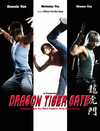
 Getting off to a very Marvel-like start should be enough of a hint that here's a comic book adaptation, in this event a conversion of an identically-titled HK staple. Similar to a multitude of other martial arts action fiestas, Dragon Tiger Gate espouses a mix of sentiment and beat 'em up orchestration that leaves it lingering on the average end of the dial. Getting off to a very Marvel-like start should be enough of a hint that here's a comic book adaptation, in this event a conversion of an identically-titled HK staple. Similar to a multitude of other martial arts action fiestas, Dragon Tiger Gate espouses a mix of sentiment and beat 'em up orchestration that leaves it lingering on the average end of the dial.
Firstly, a word on the CG effects, used mostly in delivering a pseudo-Hong Kong metropolis that's seldom seen, yet overall manages to keep in tune with the urban, almost post-apocalyptic visage required in superhero stories. Technically, DTG looks quite good until you proceed to pay attention, and realize one especially long shot of the city basically takes digitizations of real-world skyscrapers, mixes them up and hopes for the best. This kind of amateurish shortcut doesn't become an otherwise professional production.
But aside from several visual faux pas, DTG's other irony is that the plentiful emotional segments really work much better than its action bits, which is somewhat odd in a fighting extravaganza. Uniquely enough, it's easy to become enthralled by the emotive content more so than with Donnie Yen's fight choreography, and despite submitting more than a mere sample of tacky clich�s, the film nonetheless packs a touching punch far more formidable than its roundhouse kick.
And make no mistake, it's all about Donnie Yen, fresh from success with crime-noir number SPL (also directed by Wilson Yip), and less triumphant moments in Seven Swords and Hero. Surely, Yen's genuine martial arts prowess and good-guy charm come charging in on top of making movies like Dragon Inn and Iron Monkey so memorable, but in DTG he's in weaker form. Having said that, co-starring hunks Nicholas Tse and Shawn Yu (Infernal Affairs trilogy) fall far short of eclipsing yen, indeed living up to their roles as his subordinates.
The trio delivers Dragon Tiger Gate's pivotal triumvirate of characters, Yen as Wong Siu Long (Little Dragon), a master fighter employed by benevolent underworld boss Kun (one has to love those kindly mobsters). When Kun's empire comes under attack from mysteriously evil overlord Shibumi (Yan Kung), Siu Long's enrolled in the cause, particularly since it involves protecting fragile Kun daughter Xiaoling (Dong Jie, who's grown a lot since Zhang Yimou's Happy Times).
Help for struggling Siu Long emerges from leftfield in the form of two fighters also trained in eponymous kung fu academy Dragon Tiger Gate. Wong Siu Fu (Tiger Wong, done by reformed badboy Nicholas Tse) and Shek Hak Long (charismatic Shawn Yu's Turbo Shek) both lend a helping hand. All receive a proper thrashing until realizing several internal issues and consigning themselves to the sacrifice one must offer in the name of goodness. Thus, DTG follows a path previously tread by the likes of Teenage Mutant Ninjas, since here too a goofy master bestows magical supernatural powers in a scene that comes across out of place.
As entire gangs of underworld henchmen and enough home d�cor for a Home Depot/IKEA combination megastore are demolished, the movie intersperses its action and borderline-sci fi atmosphere with back story, revealing the hurt that brought many of the characters together. These function well in spite of being ostensibly trite, extending to the story's most alluring persona, ambivalent beauty Rosa, who's affection for Siu Long conflicts with working for arch-rival Shibumi. Gorgeous Li Xiao Ran renders this troubled individual with flying colors, proving almost on a par with Maggie Cheung's double agent role in Moon Warriors all those years back.
Yet capable melodrama and a few acceptably strong performances do not suffice in qualifying Dragon Tiger Gate the classic. It may be often confused with Wuxia heyday masterpiece Dragon Gate Inn (1992), but rest assured a gulf separates the two.
Toned-down, unimaginative moves come as a surprise from Yen, veteran of so many martial arts bonanzas himself, and the story in general does little to transcend the formulaic.
This is another major native East Asian comic book transition onto the silver screen that fails in many respects, following abysmal Initial D last summer. While blissfully not as bad, Dragon Tiger Gate has very little to recommend it beyond a few choice moments, and even those take it only so far, a predicament familiar to viewers from previous high-profile releases also afflicted with dud syndrome: Legend of Zu, Avenging Fist and Black Mask 2 all come to mind.
The hunt for a summer 2006 mastery of things action continues, and in the meantime, perhaps Dragon Tiger Gate aficionados can bide their time patiently for a hopefully reinforced home video release.
|
 |
 |
Lee Alon 7/31/2006 - top |
 |
 |
Mistress (1999) |
 |
 |
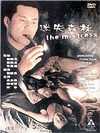
 Alex (Jacqueline Peng) is engaged by Henry (Ray Lui) a rich businessman to give English courses to his mistress, Michelle (Vicky Chen). Initially surprised by the situation, Alex quickly would become friend with Michelle who would make the female seduction known to Alex. Alex (Jacqueline Peng) is engaged by Henry (Ray Lui) a rich businessman to give English courses to his mistress, Michelle (Vicky Chen). Initially surprised by the situation, Alex quickly would become friend with Michelle who would make the female seduction known to Alex.
 Crystal Kwok's first movie, inspired by a true story, deals with the adventures of a young woman. Crystal Kwok's first movie, inspired by a true story, deals with the adventures of a young woman.
If this love affair isn't very original, the force of Crystal Kwok direction was to tell the story with a new style and a refreshing tone. Indeed Kwok multiplied cinematographic processes, but surely didn't make a melting pot of effects, so current in Hong-Kong productions. She intended actually to illustrate systematically what she was saying, and to use the camera to serve her speech right. Hence the moving camera-works when the young women do some shopping. Shots lose their reality: filters are used when showing Alex phantasms, or some scenes become a dream when a woman wandering in a misty forest illustrates the female psyche. Shots are static and slower in the depiction of melancholic moments. The music score is extremely varied as well, from jazz to Canto pop, passing by classical music. This variety of styles doesn't imply, however, a lack of coherence. The multiplicity of styles has even the capability to surprise the audience and maintains his interest. On top of that, The Mistress passes from laughter to tears, from lightness to gravity, from decency to vulgarity. This well-mastered freedom of tone makes the film unique.
These qualities go along with an original subtext for a Hong-Kong movie. It can easily face any European productions, where love affairs are one of the favourite subjects. Crystal Kwok has entirely directed The Mistress from a female point of view. She avoids then any moralistic approach and she depicts, therefore, an intriguing, exciting, but also an unsatisfactory experiment. Kwok avoids any simplification by preserving this ambivalence. If men are mediocre, women are, however, not shown like victims persecuted by them (Alex boyfriend is dull and Henry is egoistic). Director Kwok insists on the importance of the realm of fancy in love for a woman, the importance of imagination that quickly makes her forget all realities. Prisoner of a love feeling, Alex, refuses her role of mistress assigned by Henry. She loses control of the situation and she can only find a way out by stopping her love for him.
Two beautiful sequences show perfectly well this tragic dimension of the woman. The first one takes place during a modern painting exhibition. This is the first time Alex and Henry meet, and it is merely a date between friends. Alex admits that she doesn't understand contemporary art, whilst the camera stops on an abstract painting. The meaning of this scene changes at the end of film. Painting is then presented like a metaphor of love. Alex lack of understanding announced already her failure, her incapacity to understand that she would be overwhelmed by her love for Henry, by her role as a mistress. The punishment is terrible because Henry eventually leaves her without regret and she has to overcome her disappointment alone.
The second key sequence is probably when three women of Henry (his two mistresses and his wife) sing the final sentimental song. This is a wonderful metaphor to indicate this need for a woman to nourish herself with a representation of love based on a naive romanticism, an idealised love.
Is it the right solution then to have a cynical and feeling-less behaviour toward men? Some women surely would make this choice. Most of them remain captive of this way of viewing love. It is what seems to think director Crystal Kwok.
Freely translated by Thomas, September 2002.
|
 |
 |
Laurent Henry 4/30/2000 - top |
 |
 |
Hero Of Swallow (1996) |
 |
 |
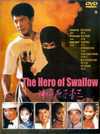
 The 'flying Swallow', Li San (Yuen Biao) robs the rich to help the poor. He has come to Beijing to search for his love, Ching Li / Chinny (Athena Chu Yin), who has been sold as prostitute. In meanwhile he is hunted by the police inspector 'captain Tang Yue Chi' (Ma Chung Tak) and he gets involved with the theft of a Ching jade chop from the royal palace, which was guarded by Chiang Lu (Eddie Ko Hung). With the help of two friends, a pickpocket (Lilly Chung Suk Wai) and a veteran of war (Tsui Kam Kong) he finds his girl, only to loose her again. The 'flying Swallow', Li San (Yuen Biao) robs the rich to help the poor. He has come to Beijing to search for his love, Ching Li / Chinny (Athena Chu Yin), who has been sold as prostitute. In meanwhile he is hunted by the police inspector 'captain Tang Yue Chi' (Ma Chung Tak) and he gets involved with the theft of a Ching jade chop from the royal palace, which was guarded by Chiang Lu (Eddie Ko Hung). With the help of two friends, a pickpocket (Lilly Chung Suk Wai) and a veteran of war (Tsui Kam Kong) he finds his girl, only to loose her again.
 In the beginning it's a bit like Iron Monkey (1993), after a while it's more like the Lizard (1972), the end is like a Chang Cheh heroic epos and in between there's time for a small love story. It's a light-hearted action film with some more serious parts, but it isn't as humorous as most of the Yuen Biao films. Yuen Biao is playing the 'flying Swallow' so it's obvious that there's some wire work. The fights are okay, but it's a pitty that most of the fights are in the dark and that they are edited in a way which made my eyes (but I'm over 50) tired. In the beginning it's a bit like Iron Monkey (1993), after a while it's more like the Lizard (1972), the end is like a Chang Cheh heroic epos and in between there's time for a small love story. It's a light-hearted action film with some more serious parts, but it isn't as humorous as most of the Yuen Biao films. Yuen Biao is playing the 'flying Swallow' so it's obvious that there's some wire work. The fights are okay, but it's a pitty that most of the fights are in the dark and that they are edited in a way which made my eyes (but I'm over 50) tired.
Overall a nice movie (if you like movies of that period) and a must for Yuen Biao fans (if they can stand the way the film ends).
|
 |
 |
Pieter Klein 10/28/2005 - top |
 |
|

|
